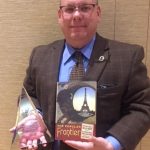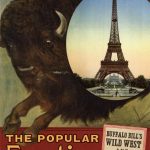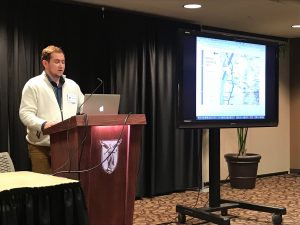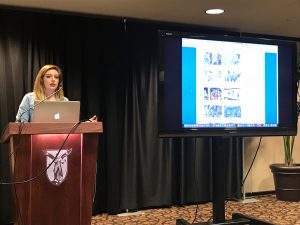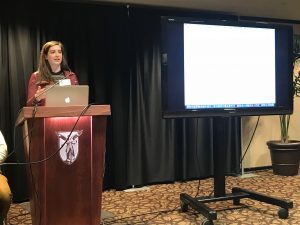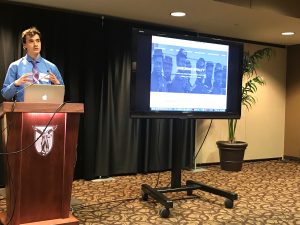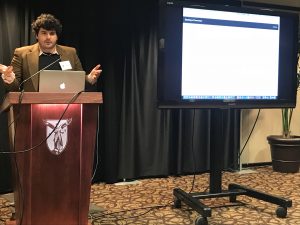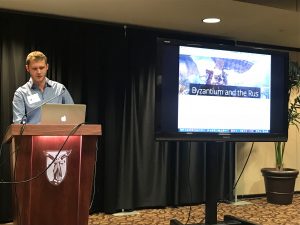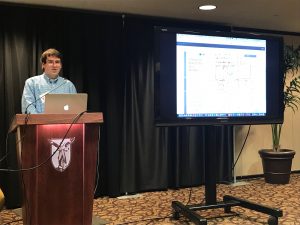I am privileged to chair this WHA 2020 roundtable session that brings a diverse panel of nine scholars together to examine the nature of the collaborations (both literal and conceptual) that the likes of fellow performers Annie Oakley, Texas Jack Omohundro, and Bill Sweeney; business partners George Beck and Pawnee Bill; and myth-makers Mark Twain, Nate Salsbury, and Major. John M. Burke forged with William F. “Buffalo Bill” Cody. Individually and collectively, the panelists will seek to understand what these collaborators meant to each other and what may have been distinctive about the means, purpose, and outcomes of their work together. This session is informed by the scholarly editing work appearing in The William F. Cody Archive, housed at the Buffalo Bill Center of the West, and The Papers of William F. “Buffalo Bill” Cody series published in collaboration with the University of Nebraska Press where many of the panelists have or will serve as volume editors. Collectively, the panelists will address how these various collaborations expand or complicate our understanding of the ways the frontier West was reimagined for a global audience.
Co-Chairing a WHA 2020 conference panel: “What’s My Job? A Public History Gameshow”
I am looking forward to co-chairing, with Rebecca Wingo, this important session highlighting the variety of Public History professions in an exciting format at the 2020 Western History Association’s 2020 conference (#WHA2020).
Within the academy, there is still a divide between professional academics and academics in other professions. This panel seeks to demystify any misperceptions about what public historians in a variety of fields actually do for a living — in a gameshow format! Think of “What’s My Line” or similar biographical gameshows of yesteryear where, in this case, the audience comes to appreciate the nuances of the work historians do in the public sphere. Included on the panel are the following presenters:
- Nicolai Kryloff, Historical Research Associates, Inc.
- Justin Henderson, Regional Heritage Partnerships Program Manager, NPS
- Jeff Pappas, New Mexico State Historic Preservation Officer
- Roberto Martinez, State Historian of New Mexico
- Tara Travis, Museum Curator, Mesa Verde National Park and Yucca House National Monument
- Zebulon Miracle, Curator of Curiosity– Gateway Canyons Resort
- Jeremy Johnston, Historian, Buffalo Bill Center of the West
NPR: In Virginia, Sacagawea Gets Her Own Statue
In November of 2019, I was contacted by Sandy Hausman of National Public Radio affiliate WVTF to react to a then-brewing controversy in Charlottesville, Virginia over the depiction of Sacagawea–the Native American woman who guided the Lewis and Clark expedition across much of the Rocky Mountain West–in a 1919 sculpture commemorating the local leaders of the Corps of Discovery situated conspicuously in the middle of a downtown street. According to Hausman, “City leaders in Charlottesville, Va., will remove a statue of Lewis and Clark because their guide, Sacagawea, is portrayed as weak. They will replace it with one that highlights her importance.” My brief contribution to the “In Virginia, Sacagawea Gets Her Own Statue,” begins around 2:00. While a post-doc at UVa, I directed the Lewis and Clark Bicentennial project from 2002-04. During that time I taught my first digital history courses to undergraduate in the Media Studies program. One of the early student projects from the fall 2002 semester, “Lewis and Clark: Nostalgia and the Frontier,” included an examination of Charles Keck’s sculpture commissioned by Paul Goodloe McIntire. The students, Stephen Coleman, Lisa Jensen, and Katherine Schumann, created a small thematic research collection that they divided into four sections: Description, Construction, Dedication, and Reaction. It is from this collection that the passage I read in the NPR story by Keck on the composition of his sculpture comes from.
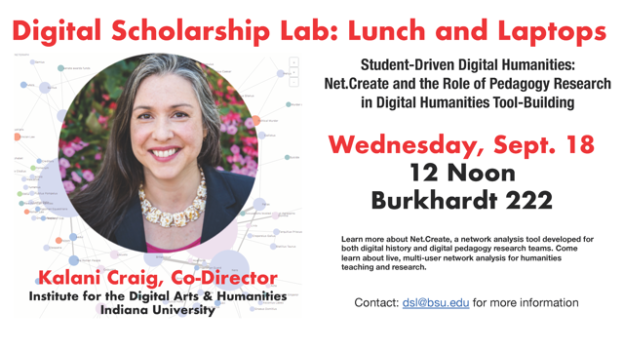
DSL Lunch and Laptops: Net.Create with Kalani Craig
Kalani Craig, Indiana University, “Student-Driven Digital Humanities: Net.Create and the Role of Pedagogy Research in Digital Humanities Tool-Building,” Wednesday, September 18, at 12:00 noon in Burkhardt 222.
Digital humanities scholars regularly incorporate practices from informatics, computer science, and data science as we build our research agendas and develop our tools. We then draw on these interdisciplinary research practices to shape our students’ classroom encounters with digital humanities, but how often do we systematically draw on student experiences to shape our research practice?
Kalani Craig, Co-Director of the Institute for Digital Arts and Humanities, will document the development and use of Net.Create, a network analysis tool developed for both digital-history and digital-pedagogy research teams. Her presentation will explore the effects of student learning outcomes on the network-theoretical and digital-history-methods principles for history research teams. Immediately following the talk, those in attendance can spend a few minutes with the Net.Create tool in a hands-on activity that demonstrates those principles in action.
Bring your lunch and your laptop (or tablet) to learn more about this innovative approach to live, multi-user network analysis for humanities teaching and research. The event is co-sponsored by the Ball State University Digital Scholarship Lab and the Department of History.
Iron Chef Pedagogy Competition
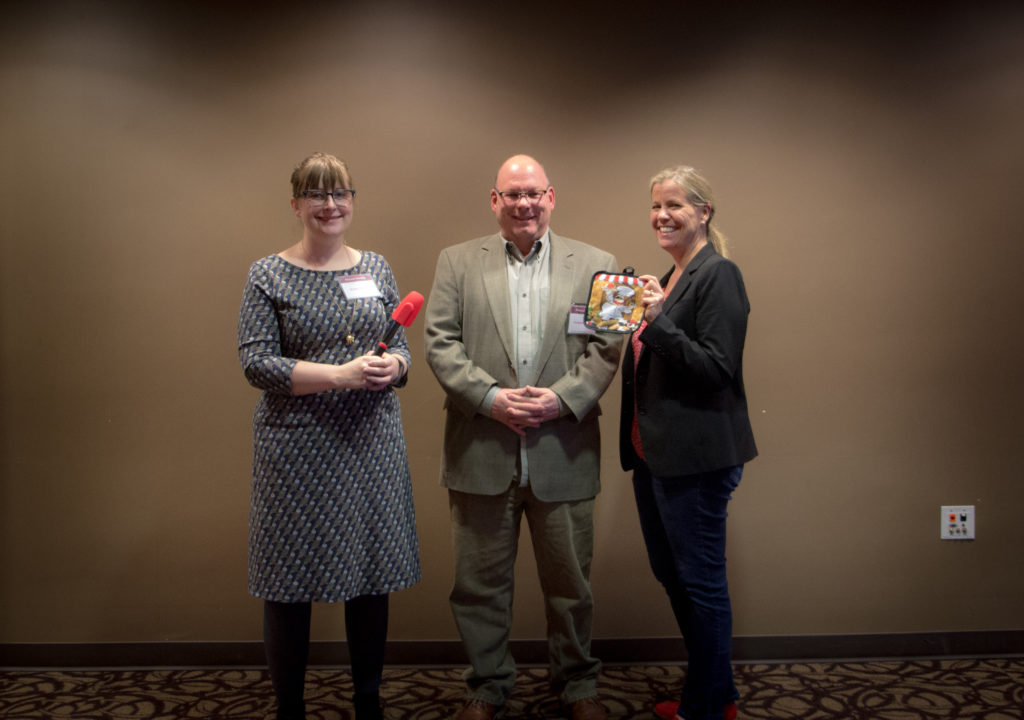
On Friday, April 12, 2019, Emily Johnson (History), Douglas Seefeldt (History), and Deborah Mix (English) teamed up to participate in the Iron Chef Pedagogy competition as part of the Ball State University Provost Faculty Summit.
Combining the concepts of popular TV chef battles, such as Iron Chef and Chopped, faculty teams from across campus formed to see who could create the best “recipe” for teaching and learning challenges. Each team received a theme (main ingredient) – a teaching and learning scenario to explore in the classroom that was complicated with “secret ingredients” (instructional technology tools).
While our team didn’t win, we did have fun participating!
Cody Series Book Wins NCWHM Prize!
Lakota Performers in Europe: Their Culture and the Artifacts They Left Behind, the third book in our series, The William F. Cody Series on the History and Culture of the American West, published by the University of Oklahoma Press, is the winner of the 2018 Best Nonfiction Book award by the National Cowboy & Western Heritage Museum in Oklahoma City, OK! The book is written by by Steve Friesen with Francois Chladiukand and features a Foreword by Walter Littlemoon.
Cody Series Book Wins PCA Prize!
The Popular Frontier: Buffalo Bill’s Wild West and Transnational Mass Culture, the fourth book in our series, The William F. Cody Series on the History and Culture of the American West, published by the University of Oklahoma Press, recently won the Ray & Pat Browne Award for Best Edited Collection in Popular Culture and American Culture from the Popular Culture Association. The award was formally presented at the PCA annual conference in Indianapolis, IN on March 29, 2018 to Frank Christianson, the Senior Editor of The Papers of William F. Cody and the editor of this collection of essays. Co-Series Editor Douglas Seefeldt was on hand to accept the award on Frank’s behalf. Congratulations Frank!
Digital History Panel at Ball State University Student History Conference
I chaired a panel at the 21st Annual Department of History Student History Conference on Friday, February 23, 2018 at Ball State University titled, “Doing Digital History.” The panel included current M.A. students Nate Adams, Katy Evans, Anna Kinnen, Jake Klinger, Frank Lacopo and Brendan White presenting their digital history research projects from my HIST 661: Digital History Seminar along with graduate alumnus Hayden Shaw presenting his CRPR 698: Creative Project in a 6-minute lightning round format.
- Nate Adams, “Forgotten Saddles”
- Katy Evans, “Construyendo la Mujer Nueva: The Image of the Revolutionary “New Woman” in Mexico and Nicaragua during the Global Sixties”
- Anna Kinnen, “To Condemn or to Praise: A Digital Analysis of Seventeenth-Century Funeral Sermons Regarding Women”
- Jake Klinger, “Ensuring Loyalty: How Black Recruitment Impacted Kentucky During the American Civil War”
- Frank Lacopo, “Speaking of Conversion: Tracing the Roman Casa dei Catecumeni, c.1500-c.1600”
- Hayden Shaw, “Following the Raven Banner”
- Brendan White, “Ball Workers in Muncie, 1888 to 1929”
The panel had comment from Professor James Connolly, George and Frances Ball Distinguished Professor of History, Director of the Center for Middletown Studies, and Co-Director of the Digital Scholarship Lab. The session was well attended and the panelists engaged with the audience in a fruitful question and answer period.
- From left to right: Panelists Brendan White; Hayden Shaw; Frank Lacopo; Jake Klinger; Anna Kinnen; Katy Evans; Nate Adams; and Douglas Seefeldt, Chair
- Nate Adams
- Katy Evans
- Anna Kinnen
- Jake Klinger
- Frank Lacopo
- Hayden Shaw
- Brendan White
- James Connolly, Comment
New Book Explores Buffalo Bill’s Wild West Exhibition Impact On Europe
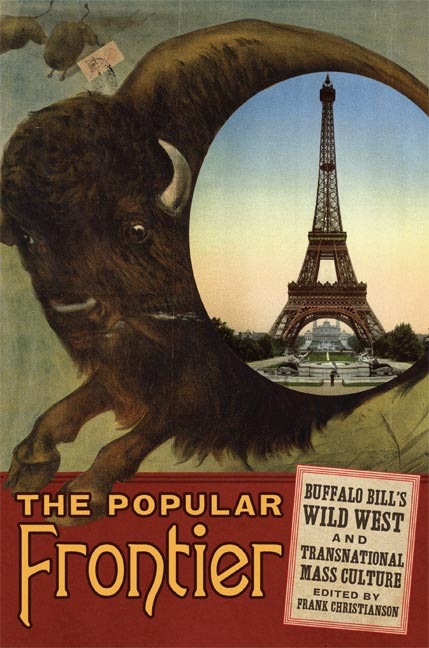
I am pleased to announce the newest book in our series, The William F. Cody Series on the History and Culture of the American West, published by the University of Oklahoma Press! The following link takes you to a nice interview with Frank Christianson, the Senior Editor of The Papers of William F. Cody and the editor of this collection of essays: The Popular Frontier: Buffalo Bill’s Wild West and Transnational Mass Culture

